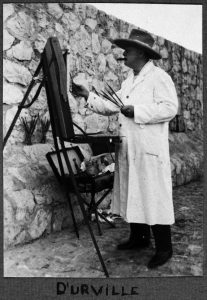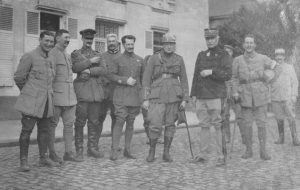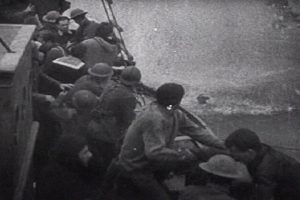Finest Hour 162
“This Guide Is Called Honour” – WINSTON S. CHURCHILL ON MUNICH IN 1948

Winston Churchill, Parliament Square, London © Sue Lowry & Magellan PR
February 14, 2015
Finest Hour 162, Spring 2014
Page 30
For some years it seemed that the question whether Britain and France were wise or foolish in the Munich episode would become a matter of long historical controversy. However, the revelations which have been made from German sources and particularly at the Nuremberg Trials, have rendered this unlikely. (218)
The Soviet Proffer
[In March 1938 the Russians] wished to discuss, if only in outline, ways and means of implementing the Franco-Soviet pact within the frame of League action in the event of a major threat to peace by Germany. This met with little warmth in Paris and London. The French Government was distracted by other preoccupations. There were serious strikes in the aircraft factories. Franco’s armies were driving deep into the territory of Communist Spain. Chamberlain was both sceptical and depressed. He profoundly disagreed with my interpretation of the dangers ahead and the means of combating them. I had been urging the prospects of a Franco-British-Russian alliance as the only hope of checking the Nazi onrush….the Prime Minister expressed his mood in a letter to his sister on March 20: “The plan of the ‘Grand Alliance,’ as Winston calls it, had occurred to me long before he mentioned it….You have only to look at the map to see that nothing that France or we could do could possibly save Czechoslovakia.”…Here was at any rate a decision. It was taken on wrong arguments.
In modern wars of great nations or alliances particular areas are not defended only by local exertions. The whole vast balance of the war-front is involved. This is still more true of policy before war begins and while it may still be averted. It surely did not take much thought from the “Chiefs of Staff and F.O. experts” to tell the Prime Minister that the British Navy and the French Army could not be deployed on the Bohemian mountain front to stand between the Czechoslovak Republic and Hitler’s invading army….How erroneous Mr. Chamberlain’s private and earnest reasoning appears when we cast our minds forward to the guarantee he was to give to Poland within a year, after all the strategic value of Czechoslovakia had been cast away, and Hitler’s power and prestige had almost doubled! (213-14)
Hitler’s Order
On June 18 [Hitler] issued a final directive for the attack on Czechoslovakia, in the course of which he sought to reassure his anxious generals….“I will decide to take action against Czechoslovakia only if I am firmly convinced, as in the case of [the Rhineland] and the entry into Austria that France will not march, and that therefore England will not intervene.” (226)
Allied Readiness
The Czechs had a million and a half men armed behind the strongest fortress line in Europe, and equipped by a highly organised and powerful industrial machine. The French Army was partly mobilised, and, albeit reluctantly, the French Ministers were prepared to honour their obligations to Czechoslovakia. Just before midnight on September 27 the warning telegram was sent out from the Admiralty ordering the mobilisation of the Fleet for the following day. (243)
The German Generals
There was intense, unceasing struggle between the Führer and his expert advisers. Beck was universally trusted and respected by the Army Staff, who were united not only in professional opinion but in resentment of civilian and party dictation. The September crisis seemed to provide all the circumstances which the German generals dreaded. Between thirty and forty Czech divisions were deploying upon Germany’s eastern frontiers, and the weight of the French Army, at odds of nearly eight to one, began to lie heavy on the Western Wall. A hostile Russia might operate from Czech airfields, and Soviet armies might wend their way forward through Poland or Roumania. Finally, in the last stage the British Navy was said to be mobilising. As all this developed passions rose to fever-heat….
The generals were repeatedly planning revolts, and as often drew back at the last moment for one reason or another…. There can be no doubt however of the existence of the plot at this moment, and of serious measures taken to make it effective. “By the beginning of September [Halder says] we had taken the necessary steps to immunize Germany from this madman…and issue a proclamation to the people that we had taken this action only because we were convinced they were being led to certain disaster.” (244)
German Military Analysis
Of other less violent but earnest efforts of the General Staff to restrain Hitler there can be no doubt. On September 26 a deputation, consisting of General von Hanneken, Ritter von Leeb, and Colonel Bodenschatz, called at the Chancellery of the Reich and requested to be received by Herr Hitler. They were sent away. At noon on the following day the principal generals held a meeting at the War Office. They agreed upon a memo- rial, which they left at the Chancellery.
Of other less violent but earnest efforts of the General Staff to restrain Hitler there can be no doubt. On September 26 a deputation, consisting of General von Hanneken, Ritter von Leeb, and Colonel Bodenschatz, called at the Chancellery of the Reich and requested to be received by Herr Hitler. They were sent away. At noon on the following day the principal generals held a meeting at the War Office. They agreed upon a memorial, which they left at the Chancellery.
This document was published in France in November 1938….Chapter I stresses the divergences between the political and military leadership of the Third Reich, and declares that the low morale of the German population renders it incapable of sustaining a European war….Chapter II describes the bad condition of the Reichswehr and…“the absence of discipline.” Chapter III enumerates the various deficiencies in German armaments, dwelling upon the defects in the Siegfried Line [and] in the Aix-la-Chapelle and Saarbruck areas…. Finally, emphasis is laid on the shortage of officers….The document presents the reasons why defeat must be expected in any but a strictly local war, and affirms that less than a fifth of the officers of the Reichswehr believed in the possibility of a victory for Germany. (245-46)
Nuremberg Testimony
We have now also Marshal von Keitel’s answer to the specific question put to him by the Czech representative at the Nuremberg trials….“Would the Reich have attacked Czechoslovakia in 1938 if the Western Powers had stood by Prague?” Keitel answered: “Certainly not. We were not strong enough militarily. The object of Munich was to get Russia out of Europe, to gain time, and to complete the German armaments.” (250)
GET OUR BULLETIN
The Lessons of Munich
Those who are prone by temperament and character to seek sharp and clear-cut solutions of difficult and obscure problems, who are ready to fight whenever some challenge comes from a foreign Power, have not always been right. On the other hand, those whose inclination is to bow their heads, to seek patiently and faithfully for peaceful compromise, are not always wrong….How many wars have been averted by patience and persisting good-will!….The Sermon on the Mount is the last word in Christian ethics. Everyone respects the Quakers. Still, it is not on these terms that Ministers assume their responsibilities of guiding States. Their duty is first so to deal with other nations as to avoid strife and war and to eschew aggression in all its forms, whether for nationalistic or ideological objects. But the safety of the State, the lives and freedom of their own fellow-countrymen, to whom they owe their position, make it right and imperative in the last resort, or when a final and definite conviction has been reached, that the use of force should not be excluded….And if this be so it should be used under the conditions which are most favourable.
There is no merit in putting off a war for a year if, when it comes, it is a far worse war or one much harder to win. These are the tormenting dilemmas upon which mankind has throughout its history been so frequently impaled. Final judgment upon them can only be recorded by history in relation to the facts of the case as known to the parties at the time, and also as subsequently proved. There is however one helpful guide, namely, for a nation to keep its word and to act in accordance with its treaty obligations to allies. This guide is called honour.
It is baffling to reflect that what men call honour does not correspond always to Christian ethics. Honour is often influenced by that element of pride which plays so large a part in its inspiration. An exaggerated code of honour leading to the performance of utterly vain and unreasonable deeds could not be defended, however fine it might look. Here however the moment came when honour pointed the path of duty, and when also the right judgment of the facts at that time would have reinforced its dictates.
For the French Government to leave her faithful ally Czechoslovakia to her fate was a melancholy lapse from which flowed terrible consequences. Not only wise and fair policy, but chivalry, honour, and sympathy for a small threatened people made an overwhelming concentration. Great Britain, who would certainly have fought if bound by treaty obligations, was nevertheless now deeply involved, and it must be recorded with regret that the British Government not only acquiesced but encouraged the French Government in a fatal course. (251)
Excerpts from The Gathering Storm (pages noted), by kind permission of the Churchill Literary Estate and Randolph S. Churchill. Minor paragraphing has been added.
Subscribe
WANT MORE?
Get the Churchill Bulletin delivered to your inbox once a month.






